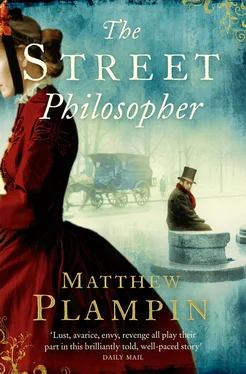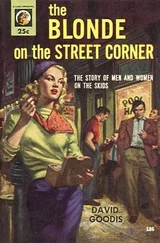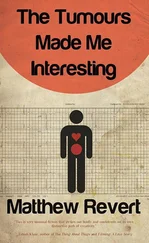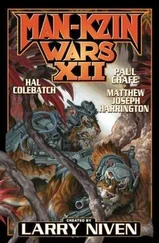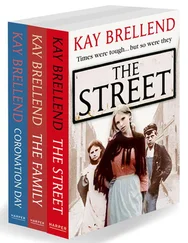Someone was shouting his name. Kitson laid his pencil flat against the pocketbook, sat up and looked over the side of the supply cart in which Styles and he had lodged themselves. Directly beside this vehicle tramped the left-most column of British infantry, an amalgamation of the Light, Fourth and First Divisions. This vast formation, so solid and resolute that morning when Kitson had started his account, was growing slack as ever-larger numbers of men slowed and even stopped, overwhelmed by fatigue, disease and the fierce afternoon sun. Across a bloated river of shakos and field packs, he saw Major Maynard, who stood waving atop a gentle rise on its opposite bank.
The Major, accompanied by a corporal, had been helping a pair of his private soldiers leave the line. Both were evidently succumbing fast to cholera. A strange silence had descended upon the army, allowing Kitson to hear Maynard instruct the two invalids to rejoin the regiment at camp that night, once they had recovered themselves sufficiently to walk. The officer then set off down the rise and straight into the column, pushing his way through to Kitson’s supply cart. He was a thickset man of about forty with a greying beard and a routinely frank expression. Drawing level to the cart, he placed a gloved hand on to its side.
‘Mr Kitson, d’you seek your senior?’
Kitson grinned at the clear suggestion in Maynard’s voice that this might well not be the case. After the clash with Boyce, and a subsequent (rather desultory) attempt to speak with some of the more senior officers, Cracknell had vanished. He had not shown himself at the Courier tent–even as dawn had arrived and his juniors had set about dismantling it and then dragging it down to the beach to be loaded on to a transport vessel. ‘I suppose so.’
Maynard chuckled. ‘Then the word is that he’s right at the front of the column, harassing the 11th Hussars. They say that Cardigan is ready to run him down.’
‘Why am I not surprised, Major?’
‘That was quite some performance he gave last night. He’s developing a real talent for aggravating my commander, isn’t he?’ The Major stopped smiling. ‘That’s maybe something you might wish to discuss with him, Mr Kitson–being the more rational of the Courier’ s correspondents.’
‘Faint praise if ever I heard it. And I’m afraid that he would heed me less than anyone, Major. All we can do is to endeavour to keep them well apart, and hope this campaign is over as quickly as is being predicted.’ Kitson turned over a page in his pocketbook and readied his pencil. ‘With that in mind, may I ask your opinion on the rumours that Russian forces have been sighted around the Heights at the mouth of the Alma valley–interposing themselves between us and Sebastopol?’
Maynard eyed him wearily and opened his mouth to reply. A loud smashing sound nearby distracted him; some thirty yards back from the column, a group of lancers, splintered off from the Light Brigade, were kicking in the door of a squat peasant cottage, half-hidden in a thick bramble bush. They pulled at the shards with their white-gloved hands and piled inside. Kitson hoped that its inhabitants had abandoned it and fled to safety, well out of the army’s path. Some of the marching infantrymen looked over without much interest.
‘The noble 17th,’ the Major muttered disapprovingly. ‘Such robbery is a shameful part of army life, Mr Kitson, as I’m sure you’ve discovered by now. A part that I for one hope the scrutiny of the press might help to discourage.’
Kitson remembered the statuette and Cracknell’s cursory response to the story of its destruction. ‘My hope also, Major, but there is scant interest in such matters, and a delicate balance must be struck between—’
Maynard, glowering at the cottage and the horses tethered outside it, was not listening. ‘I shall stop them.’ He removed his hand from the cart’s side and straightened his cap decisively. ‘Whether they’ll heed an infantry officer–well, we shall see. Good day to you, Mr Kitson.’
The column swallowed Major Maynard back up again and the supply cart trundled on, leaving the lancers and the cottage behind. Kitson glanced around. Styles was perched on a barrel at the other end of the cart, still sketching absorbedly. Loath to interrupt him, Kitson flicked back the page in his pocketbook and looked again at the paragraphs he had written that morning. Something about their triumphal tone was unsatisfactory. He tapped his pencil against his thumbnail; and then noticed Styles’ drawing folder, tucked between two crates not far from where he sat. It occurred to him that neither he nor Cracknell had actually inspected the illustrator’s work yet–a lamentable oversight indeed. He reached for the folder and unlaced it.
Top of the pile was a loose, urgent recollection of the exchange that had occurred before Lieutenant-Colonel Boyce’s tent the night before. It depicted the moment Cracknell appeared before the officers of the 99th. Styles had captured perfectly the contrast between the senior correspondent’s careless pose and the startled rigidity of those he confronted. The drawing was animated yet unmannered; accurate yet unfussy; balanced yet dynamic. Kitson drew in a deep breath. He’d been wondering why exactly O’Farrell had been so keen to hire this Mr Styles, given his evident inexperience–and here was the answer. Robert Styles was a man of true ability, of genius even, far beyond the hack illustrators who were usually employed by the Courier . Put an artist of this calibre in front of momentous events such as those unfolding in the Crimea, and something of significance was sure to result.
The correspondent leafed through the pile, his smile broadening; there were studies of the minarets and towers of Constantinople, of groups of people huddled against the rail of the H.M.S. Arthur , of the landing zone drawn from the sea. All were similarly expert. Then he came to one that made him stop.
It was a portrait of Madeleine Boyce. She was seated in a deck-chair, one hand raised to shield her eyes from strong sunlight. She appeared pensive, as if contemplating something away in the distance. The scene had been treated informally; it showed a young woman, fashionably dressed, relaxing on the deck of a ship. Yet the image was infused with a beauty that entirely transcended this mundane setting. It was plainly a work born of a lover’s ardour. The man who had drawn it, Kitson realised, would not give up on its subject as easily as Styles had seemed to do the evening before. There was more to come regarding the Courier’ s illustrator and Mrs Boyce.
Kitson closed the folder and got to his feet. Arms extended slightly to keep his balance in the rocking cart, he made his way to its rear. ‘Mr Styles,’ he called, ‘ready yourself. We must move to the front to find Cracknell. They say he is up there somewhere, badgering the cavalry.’
He reached Styles’ side and saw the vista laid out before him. In the wake of the columns was scattered a multitude of spent and dying soldiers, shed from the advancing army like dusty red petals. This was what the illustrator had been drawing with such furious concentration: not magnificence, not glory, but suffering and ignominious death. The sheet in front of him contained studies of collapsed, cholera-ridden men, doubled up in agony or lying insensibly in pools of smoky shadow. Kitson stared hard at Styles for a moment. Ashamed by the vulnerability he had displayed the previous day, the illustrator was trying to cauterise the tender part of his soul by pressing it against that from which it had so naturally recoiled.
‘Come,’ Kitson said abruptly, handing over the folder. ‘We have to go.’
They jumped from the cart and began to walk quickly up the line, their light packs and relative freshness enabling them easily to outpace the exhausted infantry. Without slowing, Kitson lifted his pocketbook and put several heavy pencil strokes through the morning’s paragraphs.
Читать дальше
